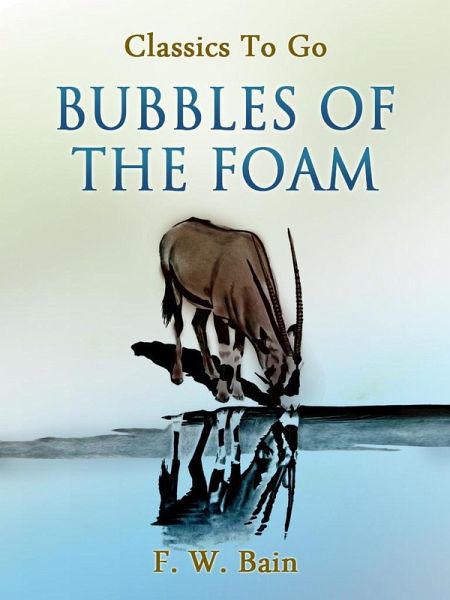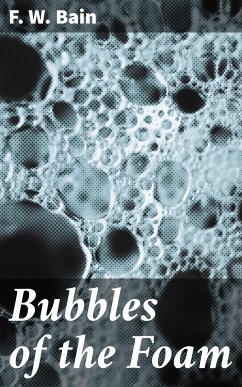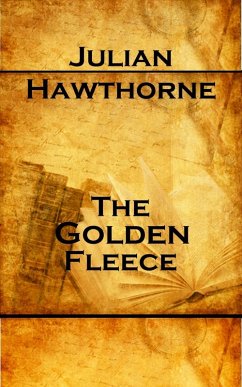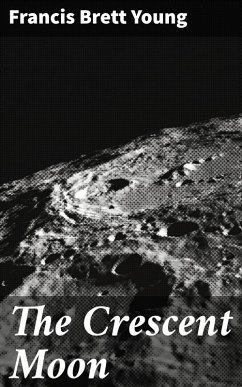
Bubbles of the Foam (eBook, ePUB)
Versandkostenfrei!
Sofort per Download lieferbar
1,99 €
inkl. MwSt.
Weitere Ausgaben:

PAYBACK Punkte
1 °P sammeln!
Another magical tale from literary fraudster F.W. Bain, supposedly translated from an ancient Sanscrit text but most probably written by the author. The god Maheshwara and his consort Párwatí are flying over the desert when they see a mirage, which the Hindus call the "thirst of the antelope", and the skeleton of a camel. Maheshwara tells the story of how those bones came to be there; a sad story of love, the human mirageDuring Bain''s life, argument raged about whether his stories were truly a translation from Sanskrit, as he claimed them to be, or whether Bain had written it himself. While...
Another magical tale from literary fraudster F.W. Bain, supposedly translated from an ancient Sanscrit text but most probably written by the author. The god Maheshwara and his consort Párwatí are flying over the desert when they see a mirage, which the Hindus call the "thirst of the antelope", and the skeleton of a camel. Maheshwara tells the story of how those bones came to be there; a sad story of love, the human mirageDuring Bain''s life, argument raged about whether his stories were truly a translation from Sanskrit, as he claimed them to be, or whether Bain had written it himself. While some early reviewers took his statements at face value, many did not. A contemporary review said, in part: "Though palpably a pretence, they are graceful fancies, and might as well have appeared for what they really are instead of masquerading as "translations". No Hindu, unless of this generation and under foreign influence, ever conceived these stories. . . . Moreover, they are of a strict propriety, whereas original Hindu love stories would put Rabelais''s ghost to the blush." The book contains numerous footnotes referring to Sanskrit puns and wordplay that the author claimed to have been unable to render in English. (Excerpt from Wikipedia)
Dieser Download kann aus rechtlichen Gründen nur mit Rechnungsadresse in A, B, BG, CY, CZ, D, DK, EW, E, FIN, F, GR, HR, H, IRL, I, LT, L, LR, M, NL, PL, P, R, S, SLO, SK ausgeliefert werden.













